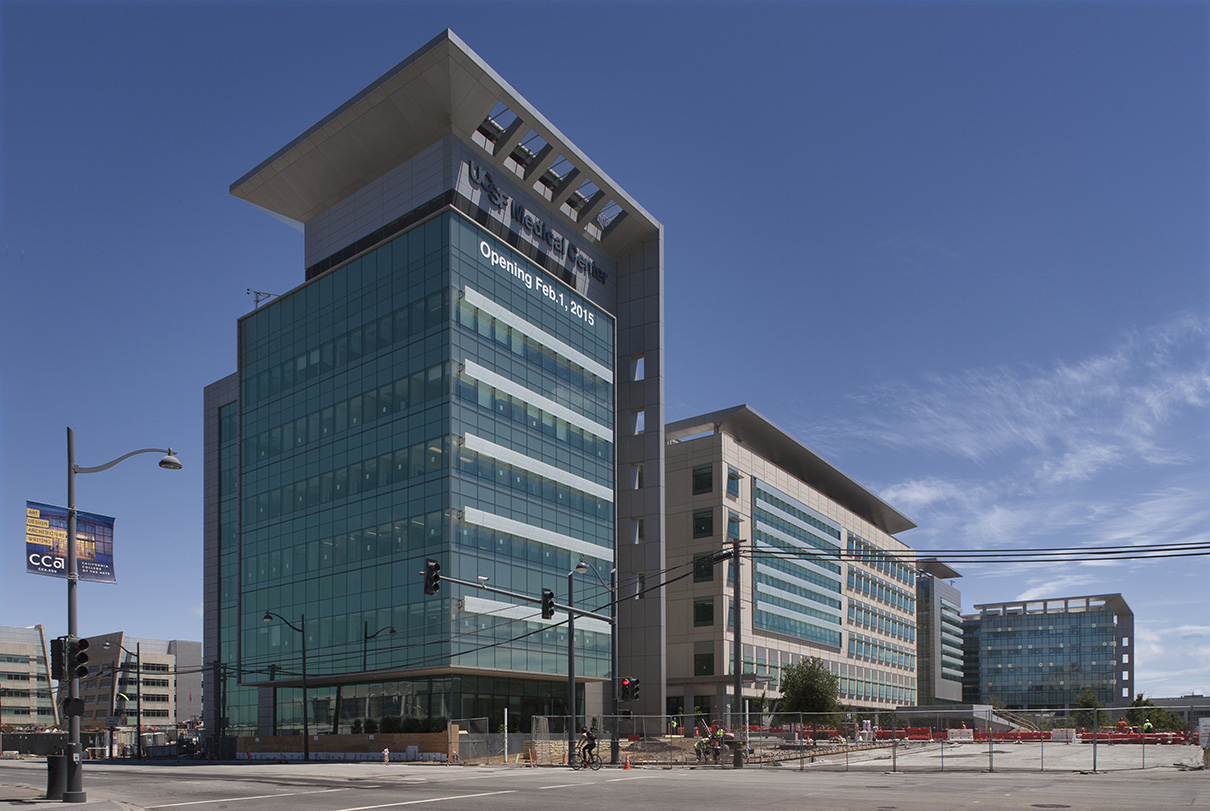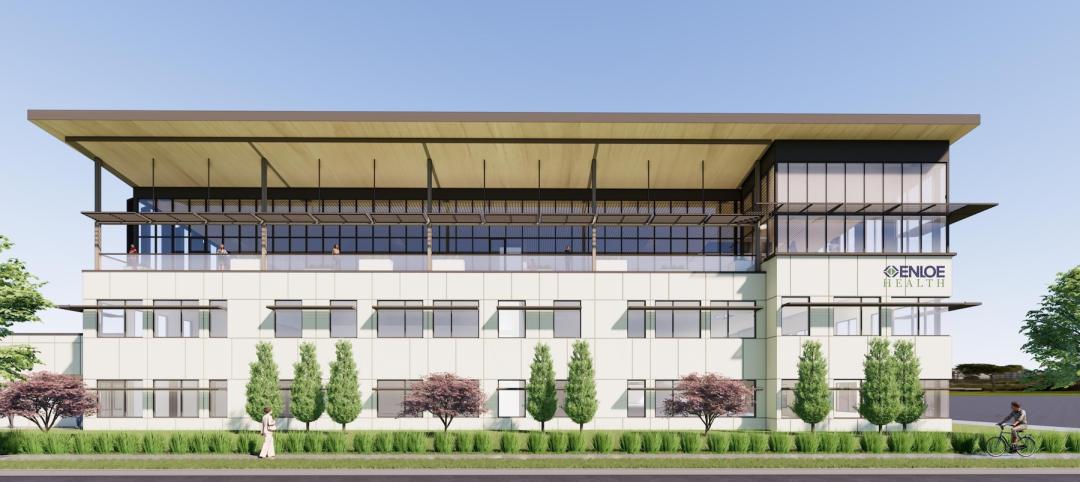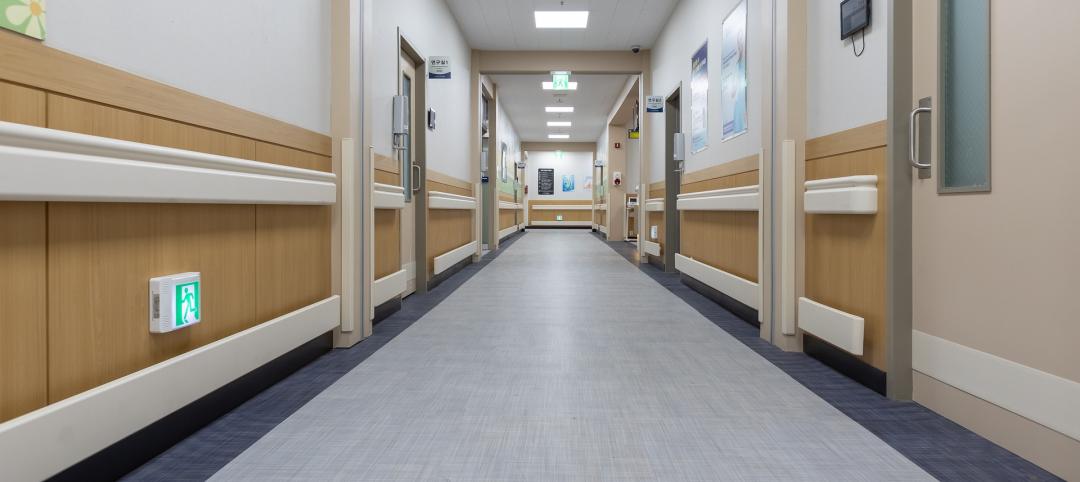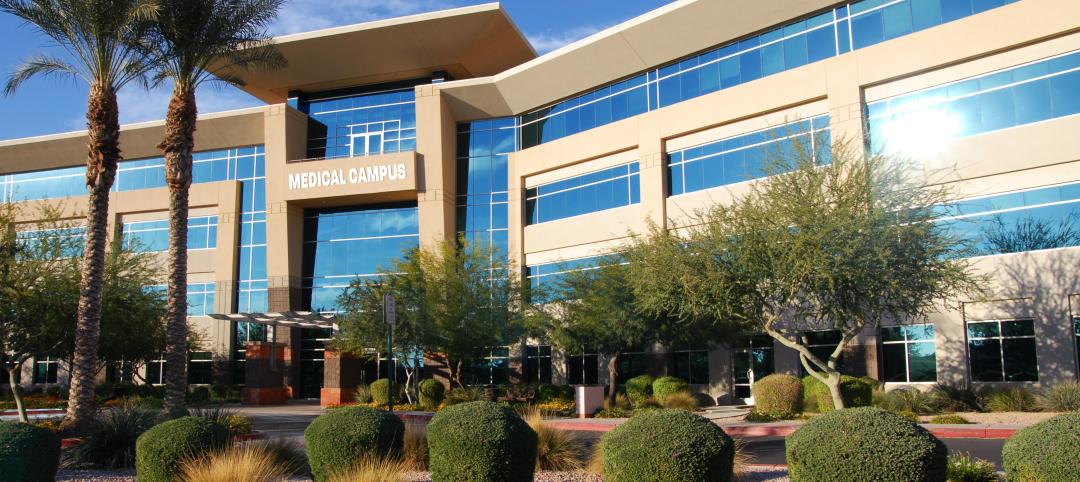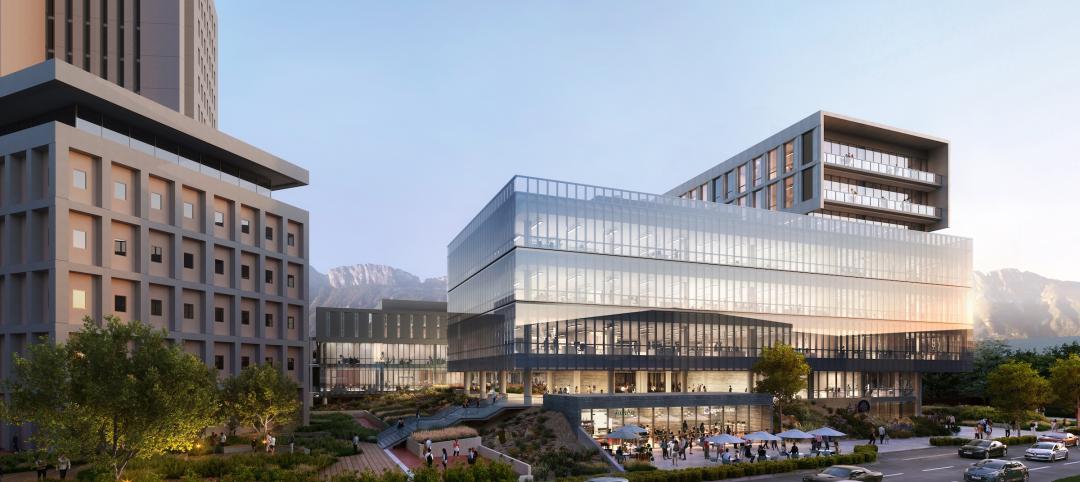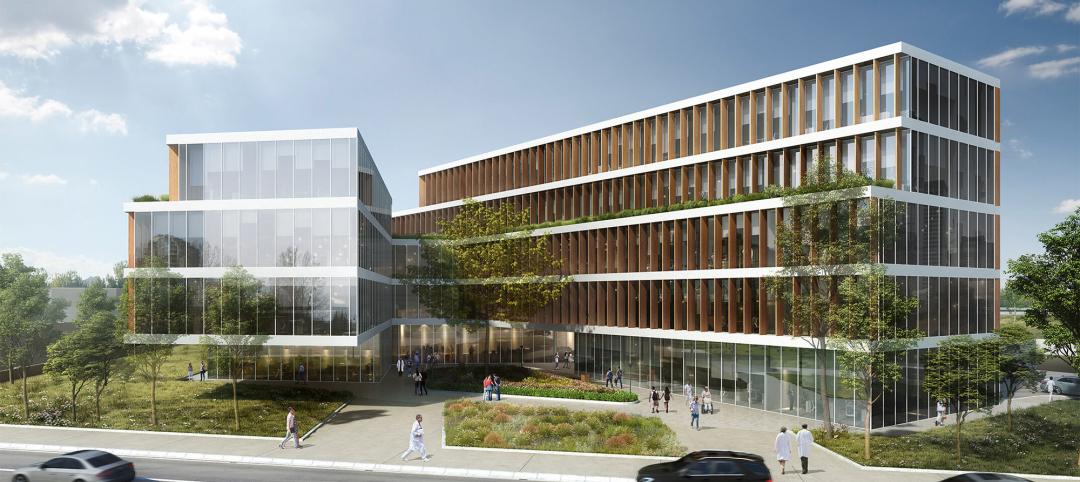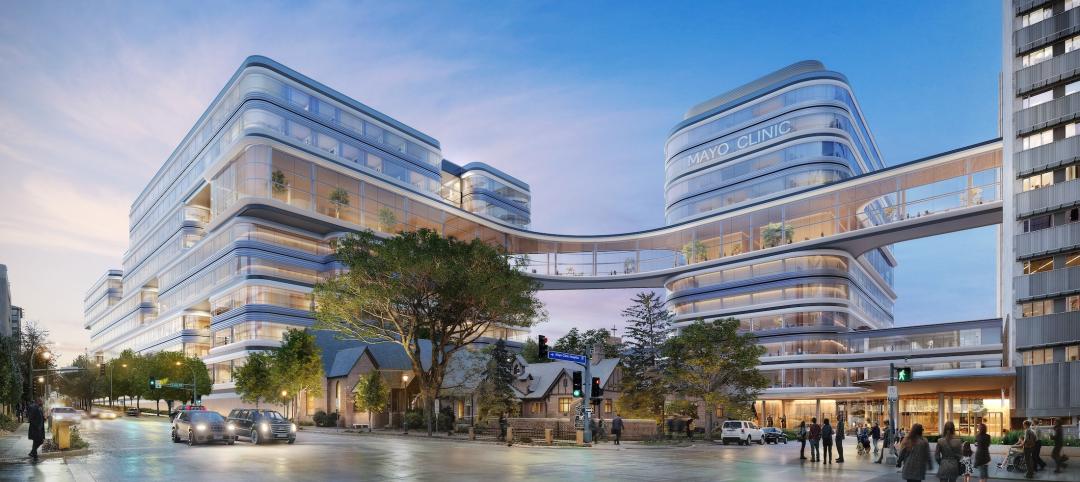On Sunday, Feb. 1, The University of California at San Francisco Medical Center officially opens an 878,000-sf, six-story complex at UCSF’s 60.2-acre Mission Bay research campus that includes three state-of-the-art hospitals with a total of 289 beds.
Ten years in the planning, the new medical center started construction in December 2010. It has approximately 300 employees and 500 physicians. About $600 million of the complex’s $1.5 billion cost was raised from private donors, including venture capitalist Ron Conway, who contributed $40 million to the complex’s 207,500-sf outpatient medical building with 180 exam rooms, which is expected to serve 1,500 outpatient visitors daily.
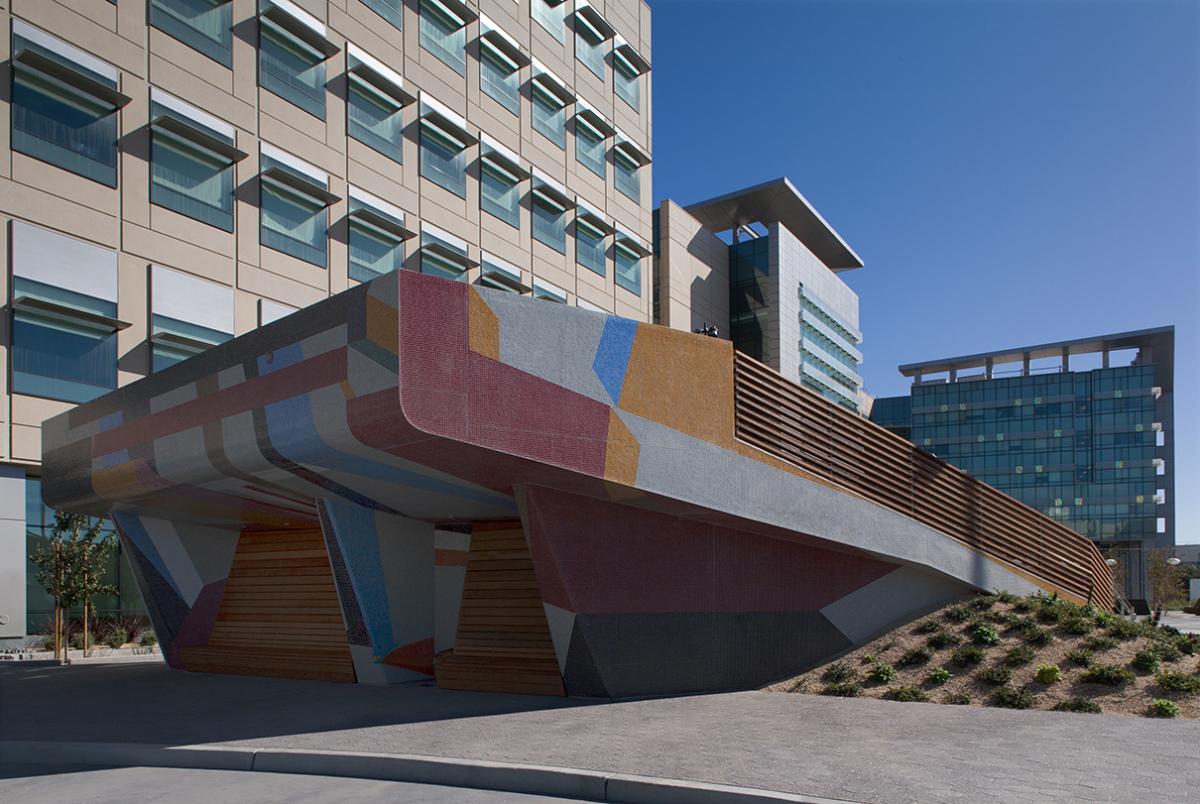
All told, the new medical complex anticipates 122,000 outpatient visits in its first year, 5,380 outpatient surgeries, 4,272 inpatient surgeries, and between 2,600 and 2,700 births.
The new medical center focuses on caring for children, women, and cancer patients. The UCSF Benioff Children’s Hospital San Francisco, with 183 beds that include a 50-bed neonatal nursery, handles all pediatric inpatient visits. (Benioff’s chlidren’s hospital on UCSF’s Parnassus campus is moving its inpatient services to Mission Bay, but will continue to handle child outpatient care.) The new facility includes a fully accredited K-12 school, and media platforms for room service, Skype, and social media.
The 36-bed UCSF Betty Irene Moore Women’s Hospital is the region’s first dedicated women’s hospital. And the 70-bed UCSF Bakar Cancer Hospital serves adult patients with orthopedic, urologic, gynecologic, head and neck, gastrointestinal, and colorectal cancers.
Among the technologies available at this medical center are telemedicine, robotics, and intra-operative imaging.
The complex includes 4.3 acres of green space, 60,000 sf of rooftop gardens on the third, fourth, and fifth floors; a 99,000-sf public plaza on Fourth Street; and 1,049 available parking spaces.
(Take a virtual “fly through” of the medical center.)
The location of the medical center on UCSF’s Mission Bay campus puts its physicians in close proximity to researchers and new biotechnology and pharmaceutical companies in the area. The new cancer hospital, for example, sits near the UCSF Helen Diller Family Cancer Research Building, where leading scientists are seeking causes and cures for cancer.
“The location was key to bringing the three hospitals together,” says Herb Moussa, AIA, LEED AP, Principal at Stantec Architecture, the project’s lead architect. (The Building Team included Cmbridge CM as project and construction management consultant; William McDonough+Partners as Associate Architect; DRP Construction as general contractor; Rutherford & Chekene as the hospitals’ structural engineer; ARUP as structural and MEP engineer; CSWStuber-Stroeh Engineering as civil engineer; EDAW AECOM as landscape engineer; and Teecom Design Group for communications.)
All told, there were more than 200 architects, engineers, and contractors on this project. Moussa says they all worked at the nearby Integrated Center for Design and Construction. “Being able to work collaboratively made things go so much easier,” he tells BD+C, in terms of addressing problems and issues. For example, the client decided that the interiors for the hospitals were too disparate, and wanted their look and color palette to be more uniform. That required “quite extensive” changes, says Moussa, which would have been even more complicated had the Building Team not been working closely.
This project’s challenge, he says, was to give each hospital its own identity without undermining the complex’s conceptual design and functionality. So there are separate entrances for adults. The children’s hospital is turned 10 degrees from the rest of the complex and has its own entrance, canopy, and drop-off area.
Moussa has spent most of his career designing hospitals, but this is his first with a pediatric building. He has a special affinity for Benioff Children’s Hospital, which in April 2010 treated his then nine-year-old daughter Sarah for swelling of the brain and seizures brought on by a sinus infection that spread to her eye. Moussa kept a journal of his daughter’s treatment, which he says informed his design of the new medical center. “It gave me an appreciation of what this hospital wants to be.”
A few days before opening its Mission Bay complex, UCSF Medical Center signed a letter of intent with Fresno-based Community Medical Centers to expand women’s and children’s services to California’s Central Valley, which has an undersupply of specialists.
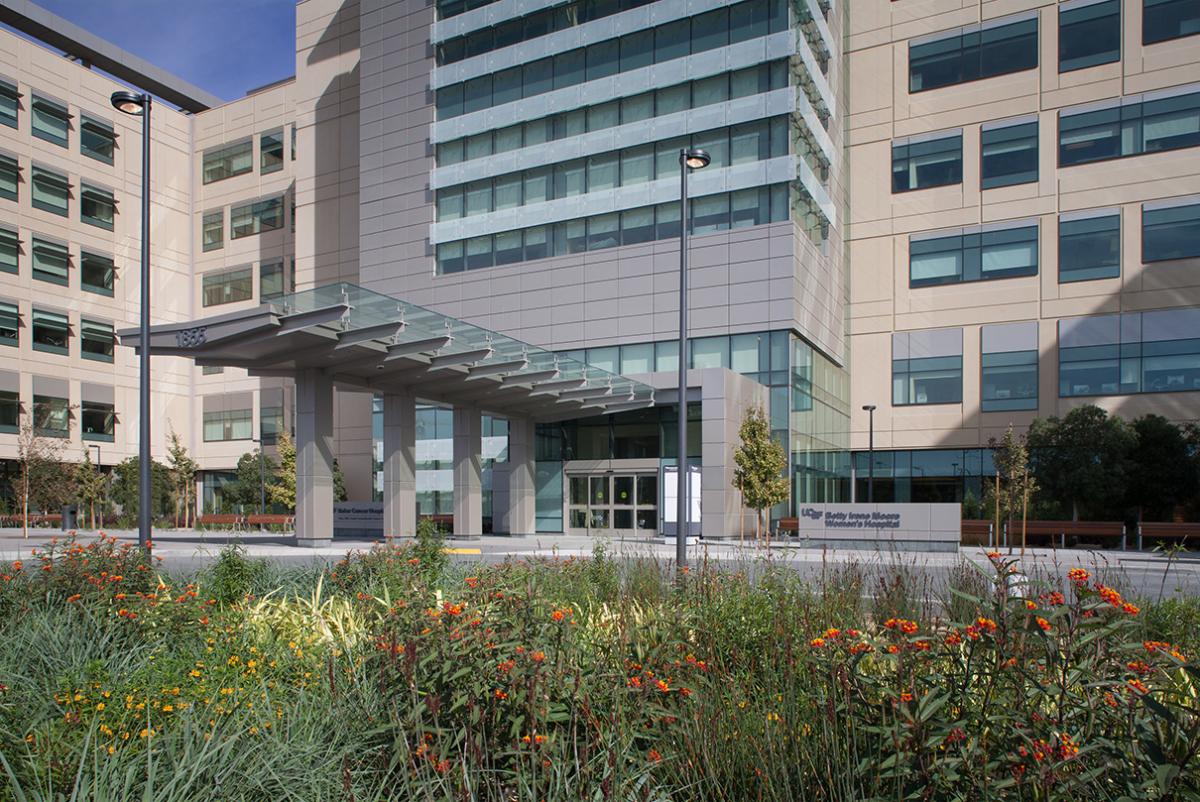
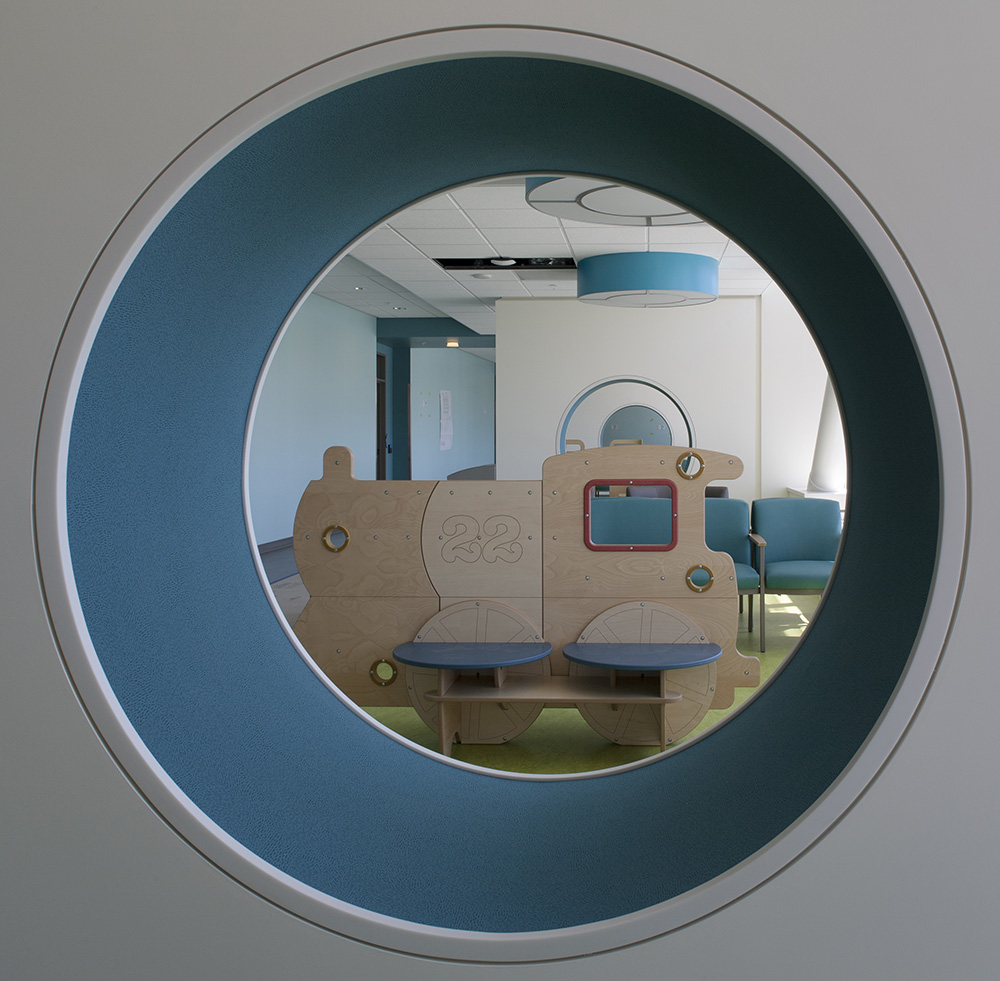
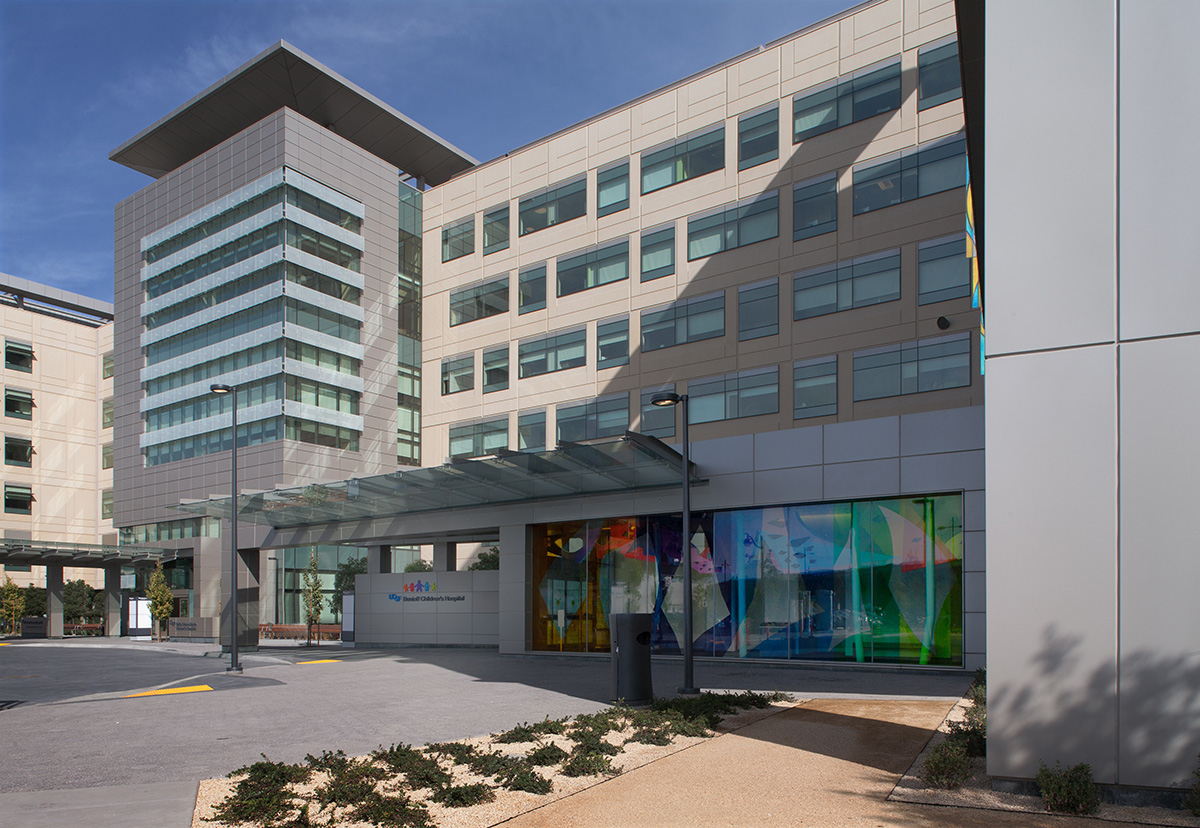
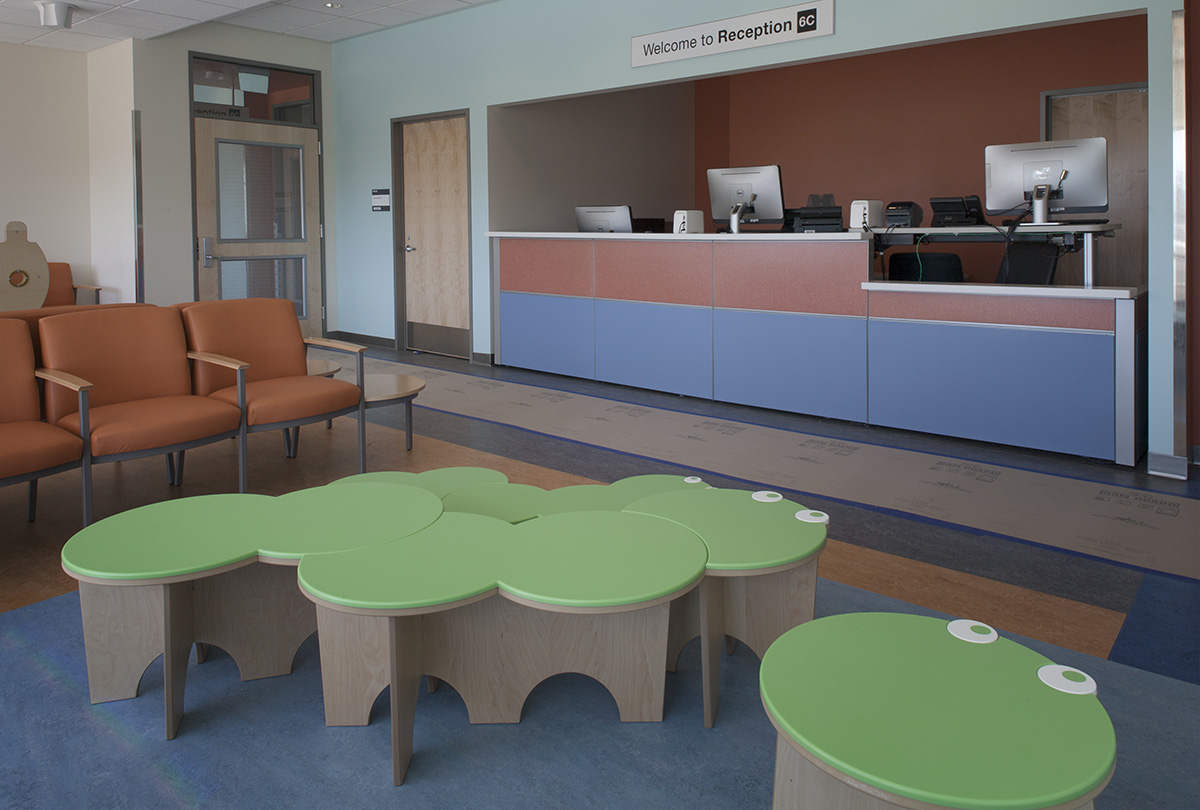
Related Stories
Healthcare Facilities | May 28, 2024
Healthcare design: How to improve the parking experience for patients and families
Parking is likely a patient’s—and their families—first and last touch with a healthcare facility. As such, the arrival and departure parking experience can have a profound impact on their experience with the healthcare facility, writes Beth Bryan, PE, PTOE, PTP, STP2, Principal, Project Manager, Walter P Moore.
MFPRO+ News | May 21, 2024
Baker Barrios Architects announces new leadership roles for multifamily, healthcare design
Baker Barrios Architects announced two new additions to its leadership: Chris Powers, RA, AIA, NCARB, EDAC, as Associate Principal and Director (Healthcare); and Mark Kluemper, AIA, NCARB, as Associate Principal and Technical Director (Multifamily).
Healthcare Facilities | May 21, 2024
A collaborative delivery contract adds a new wrinkle to construction management
The setup combines traditional pact structures with a different risk-sharing approach.
Healthcare Facilities | May 6, 2024
Hospital construction costs for 2024
Data from Gordian breaks down the average cost per square foot for a three-story hospital across 10 U.S. cities.
Sponsored | Healthcare Facilities | May 3, 2024
Advancing Healthcare: Medical Office Buildings at the Forefront of Access and Safety
This article explores the pivotal shift from traditional hospital settings to Medical Office Buildings (MOBs), focusing on how these facilities enhance patient access. Discover the key drivers of this transformation, including technological advancements, demographic trends, and a growing emphasis on integrated, patient-centered care. Learn how MOBs are not only adapting to modern healthcare demands but are also leveraging modern access control and safety innovations.
Architects | May 2, 2024
Emerging considerations in inclusive design
Design elements that consider a diverse population of users make lives better. When it comes to wayfinding, some factors will remain consistent—including accessibility and legibility.
Healthcare Facilities | Apr 16, 2024
Mexico’s ‘premier private academic health center’ under design
The design and construction contract for what is envisioned to be “the premier private academic health center in Mexico and Latin America” was recently awarded to The Beck Group. The TecSalud Health Sciences Campus will be located at Tec De Monterrey’s flagship healthcare facility, Zambrano Hellion Hospital, in Monterrey, Mexico.
Healthcare Facilities | Apr 11, 2024
The just cause in behavioral health design: Make it right
NAC Architecture shares strategies for approaching behavioral health design collaboratively and thoughtfully, rather than simply applying a set of blanket rules.
Healthcare Facilities | Apr 3, 2024
Foster + Partners, CannonDesign unveil design for Mayo Clinic campus expansion
A redesign of the Mayo Clinic’s downtown campus in Rochester, Minn., centers around two new clinical high-rise buildings. The two nine-story structures will reach a height of 221 feet, with the potential to expand to 420 feet.
Products and Materials | Mar 31, 2024
Top building products for March 2024
BD+C Editors break down March's top 15 building products, from multifamily-focused electronic locks to recyclable plastic panels.


